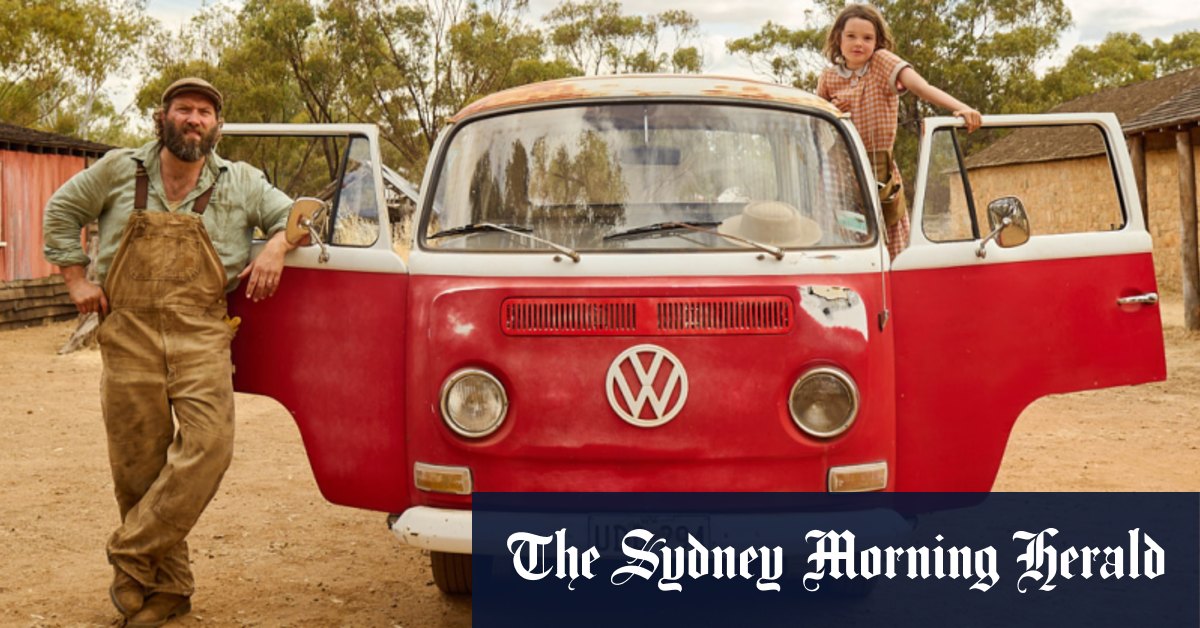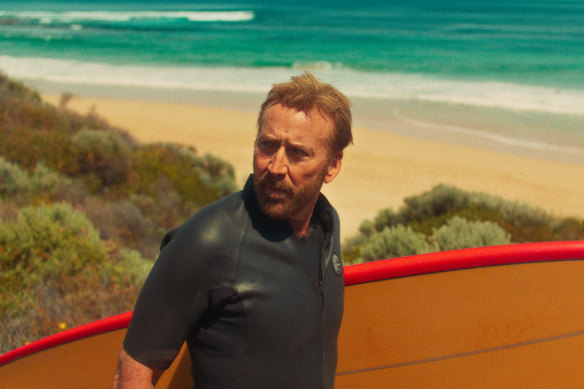
First, while the total spend was down, the sector remains healthy. Total production expenditure only passed the $1 billion mark for the first time in 2016-17, and just five years ago the agency hailed a “record” $768 million spent on Australian titles within a $1.17 billion total.
Australia’s emergence as a safe place to film during COVID has had lingering benefits. Though the strikes made a dint in foreign productions in 2023-24 (down 39 per cent in expenditure year-on-year), generous incentives for foreign productions, a favourable exchange rate and the studios’ confidence in our cast, crews and locations is likely to result in that bouncing back.

Nicolas Cage in The Surfer.Credit: Stan
However, the second clear trend is a negative for the sector: the decline of free-to-air TV as a commissioner of original Australian drama and comedy.
Public broadcaster (ABC, SBS and NITV) spending was static, but with fewer titles. Commercial TV spend was down 38 per cent year-on-year, and resulted in just four titles, with long-running serials Neighbours and Home and Away accounting for most of the hours produced. Foxtel produced just one.
With the free-to-air networks no longer obliged to commission children’s content, it is in marked decline, with just eight shows (down from 12 a year ago) and 35 hours (down from 60) produced. Expenditure was down to $58 million, from $81 million a year ago, and a five-year average of $65 million.
Loading
The bulk of TV drama production is now firmly in the hands of the streamers. According to the report, “Stan contributed to 12 titles, Netflix and Binge to four titles each, Paramount+ and Amazon Prime to two titles, Acorn and Adult Swim to one title each.”
The streamers spent $168 million on drama, the public broadcaster spent $50 million, and the commercial FTA networks spent just $41 million between them.
That the streaming platforms are now the principal commissioners of Australian drama and comedy will surprise no one in the sector. But the fact they are under no obligation to continue to play that role is a concern for some because, unlike free-to-air and subscription TV, the streamers are not obliged to commission or stream any Australian content.
Arts Minister Tony Burke had promised that long-heralded streaming quotas – or local content obligations – would be in place by July 1, and would be set higher than the 5 per cent floor proposed by the previous Coalition government.
However, that deadline came and went without legislation being introduced to parliament.
The delay, sources within both the government and the streamers have confirmed, owes to pushback from the Motion Picture Association (MPA), the lobby group representing the major studios.
The MPA has challenged quotas as a breach of the Australia-United States Free Trade Agreement, opening up the possibility of screen content becoming embroiled in wider negotiations over tariffs.
Confirming no deal was likely before the next election, Burke recently told this masthead: “We’re continuing to consult [with streamers]. It’s important to get this right.”



